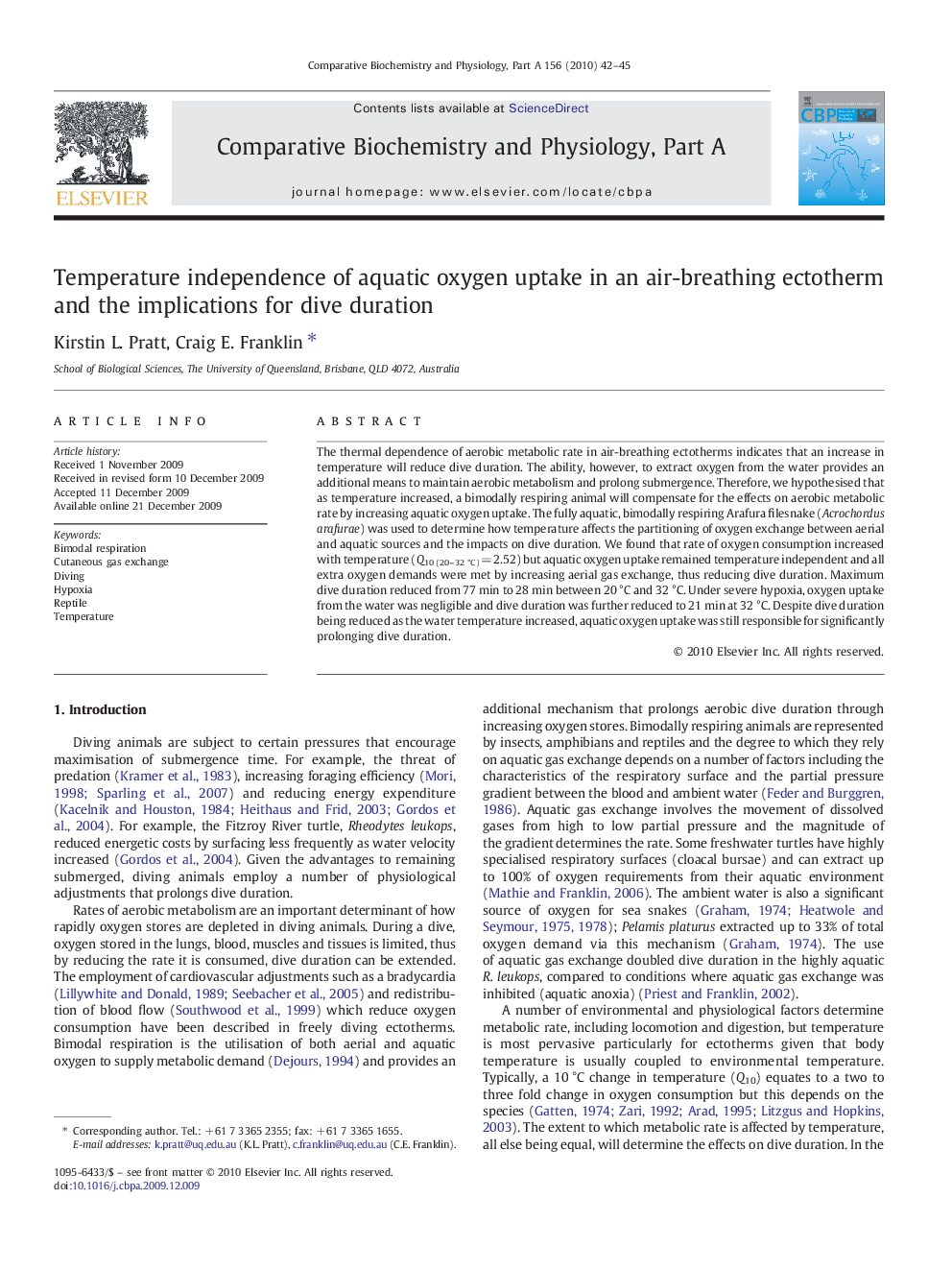| Article ID | Journal | Published Year | Pages | File Type |
|---|---|---|---|---|
| 1972701 | Comparative Biochemistry and Physiology Part A: Molecular & Integrative Physiology | 2010 | 4 Pages |
The thermal dependence of aerobic metabolic rate in air-breathing ectotherms indicates that an increase in temperature will reduce dive duration. The ability, however, to extract oxygen from the water provides an additional means to maintain aerobic metabolism and prolong submergence. Therefore, we hypothesised that as temperature increased, a bimodally respiring animal will compensate for the effects on aerobic metabolic rate by increasing aquatic oxygen uptake. The fully aquatic, bimodally respiring Arafura filesnake (Acrochordus arafurae) was used to determine how temperature affects the partitioning of oxygen exchange between aerial and aquatic sources and the impacts on dive duration. We found that rate of oxygen consumption increased with temperature (Q10 (20–32 °C) = 2.52) but aquatic oxygen uptake remained temperature independent and all extra oxygen demands were met by increasing aerial gas exchange, thus reducing dive duration. Maximum dive duration reduced from 77 min to 28 min between 20 °C and 32 °C. Under severe hypoxia, oxygen uptake from the water was negligible and dive duration was further reduced to 21 min at 32 °C. Despite dive duration being reduced as the water temperature increased, aquatic oxygen uptake was still responsible for significantly prolonging dive duration.
